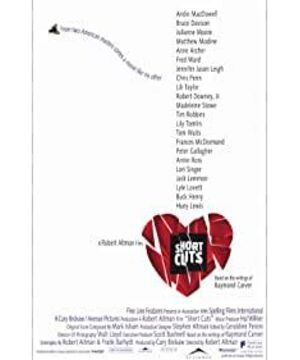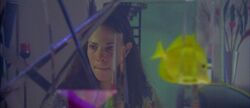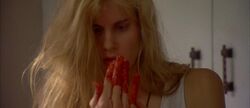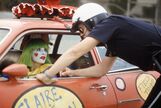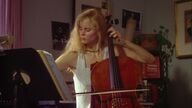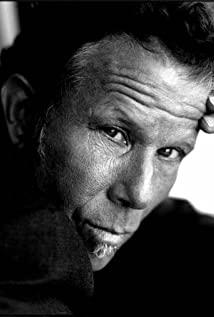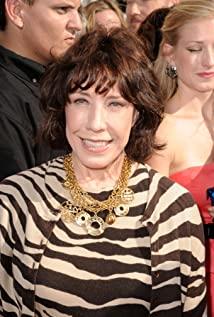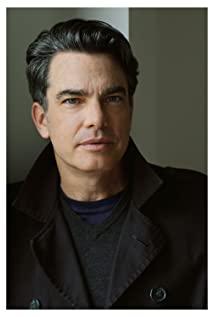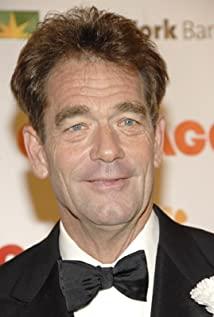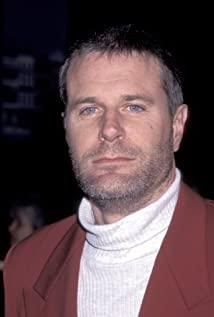Translator's note: We have listened too much to the set story of the director of "Devil". The protagonist of today's documentary article, Robert Altman, seems to be inclined to create a relatively free and harmonious creative environment. The author of this article, Buck Henry, has participated in many of Ultraman's works, and he is also a well-known writer, screenwriter and director. With Xiaochang's style, he described various things he saw and heard when he participated in Ultraman films.
Author: Buck Henry (Film Comment)
Translator: csh
The translation was first published in "Iris"
The crew members are doing the hard work as always. They dragged a two-ton tool from the mountain. On these peaks, you could overlook the winding Cohen River, which is about forty-five minutes away from Bakersfield. California has experienced six years of drought, and the heat here is unbearable. The surrounding hills were dried, and they were all brown and yellow. Real workers climbed sun-burned rocks, waded through clear and cold rivers, built platforms, laid tracks, installed cameras and sound equipment; I found a piece with the actors Fred Ward and Hugh Louis In the shade, ready to start serious fishing. Huey was sitting on a huge rock, playing his harmonica, which was a few simple country blues. Fred and I exchanged some adventure memories from a long time ago, which were all stories about Mexican brothels.
A few weeks ago, it was outside a restaurant somewhere on the outskirts of Los Angeles, and we were shooting a scene with Lily Tomlin and Tom Weitz. In the parking lot, Fred and I spent about an hour learning fishing under the guidance of Hugh Yi. He is the only one of us who can really fish. It seemed easier than I thought, so when I learned that there were no fish in Cohen, I was a little disappointed. After all, actors always like to do those things exactly when they are performing-holding a gun, tap dancing, flying a plane, eating, smoking (the kind of cigarettes that are politically incorrect), and A super beautiful woman has sex... Besides, since I am rarely asked to do the above activities-well, I have smoked in several movies-so I think (real) fishing will do it for me Add an interesting dimension to his career.
Because actors always want to be considered interesting. They also want to be seen as talented people-of course, there are "funny", "sexy" and "smart", and many other things. But I think the most important thing is fun. They want others to think like this: Hey, that guy can not only laugh, cry, and say those things, but he can really play the guitar, play rugby, knock nails, omelets, and he can really catch fish. That guy is really funny .
So, when I pretended to catch a big and fat live fish from the river, I had to act out that special excitement-the prop guy would carefully tie it to my fishing line. He had a basket. Half-awake fish. (Attention to the American Society for the Protection of Animals: No fish were actually killed during the production of this film. They may be irritated or humiliated, but there is no such thing as killing fish. I believe that in us After shooting, these fish were released in the Cohen River. I hope that they can be inspired by my debut in this movie and walk with gratitude. I also hope that Robert Redford can rediscover them downstream and bring them to life. Selected as a character in the sequel of "Lover on the River".)
It is not only the fisher who works with us. We also have another collaborator whose description of his work does not appear in most daily forms. He does not have any public official title, so we call him "The Shepherd." He made a very real female corpse, using materials including epoxy resin, plastic and some things that God knows what it is. Her face is modeled after a famous pornographic actress. The river she was in was very close to where we, the characters in this paragraph of Robert Altman's "Silver Sex, Men and Women", camped. She will stay there for a few days, silently witnessing the enthusiasm of us long-winded anglers. I know we should do something to her, but we don't have a phone. Moreover, we abandon our wives and children, stay away from the anxiety of the city, and drag camping supplies and fishing gear to the mountains miles away. All this is not to distract us from the misfortune of a stranger. After all, what's the big deal? She will die for a long time, and we only have three days to fish.
This is a creepy situation-this is the story of Raymond Carver, and Altman and co-writer Frank Bachter wrote the script based on these stories. This story is also the same as many Ultraman films, those ordinary and decent people have made extremely stupid behaviors, and mediocrity and terror are constantly colliding with each other.
There are many reasons why actors like to work for Ultraman. First of all, this is a very fun thing. "You have to find out who this character is," Altman said, "and then let me see something interesting." Look, "interesting" is here again. We will not experience much discussion about our inner world and motivations. Every actor has a small puzzle deep in his heart-in this work, there is also a big puzzle that only Ultraman can solve: 22 actors who play important roles, all In an attempt to create a real private life, these intertwined and overlapping stories together form a complex network.
Altman usually shifts the camera-in some cases, multiple cameras-slightly off the actor's face. If, as people often say, comedy exists in the distant view and tragedy exists in the close-up, then Ultraman mainly chooses a medium distance. Regarding the activities of the characters, he is satisfied with "observation" rather than "scrutinizing." This kind of scene often makes an individual as important or unimportant as others. Those actors who have adapted to the main shot-medium shot-single shot mode are often guided by this structure to bring their best performance into close-up shots. Altman will challenge this habit. He will often shoot a series of shots for a group photo show at the same middle distance, each time with the camera following a different character. Therefore, in a sense, each actor may be the focus of the shot when editing a particular passage.
The microphone will record every line, words, grunts and groans of all actors almost at all times. These voices will also be preserved, and the mixer will also face a series of very complex sounds. At that time, I participated in a fishing session in a very noisy place by the river. I was at least a hundred yards from the camera. After the shot was over, the clerk came over and asked me what was the name of the vague melody I hummed in a low voice, which surprised me. She wrote down the name of the song, because everything might come in handy.
In addition, Ultraman certainly encourages improvisation-improvisation and impromptu dialogue. Impromptu dialogue is a very tricky thing in movies, especially when it is combined with written dialogue. The actor’s speaking style often contradicts the screenwriter’s idea of the role. Moreover, in many movies, the jagged rhythm of impromptu dialogue is often neither like the dialogue in a movie script nor the dialogue in real life. This is different from reciting the dialogue. When reciting the dialogue, the emotional flow will be written into the script and rehearsed. Actors know when others will stop talking and when it's their turn again. However, improvisation actors must make special efforts to prevent the following thoughts from flashing in their minds: "What the hell is he talking about?" or "Damn, when can he not speak?" and "Next I should say what?"
This is a struggle. In other words, the key is to appear real, but fun is of secondary importance.
Altman tried to make it simpler. The main task is to make the dialogue appear as anecdotes, rather than stylized rhetoric. He will come up with a certain word or utterance to make the next improvisation more fluid. He tried to make movies more like life, not scripts. When all this takes effect, the dialogue sounds great, and the film feels great.
I think that in "Silver · Sex · Men and Women", all of this has indeed taken effect. But who cares, after all, I have learned to fish. Can be regarded as learned.
We don't need to learn a lot of dialogue, because of this, Ultraman's set looks so carefree. There is a family spirit here, everyone seems to be playing an interesting game, and they all have a great time. After finishing the day of shooting, there is no need to face several hours of reciting lines, which is a great relief.
I used to be confused as to why in the age of making silent movies, actors seemed to have such a rich social life while working. This may be because they do not have the burden of learning lines every night. If their lines are not right, then the written caption card will tell the audience what lines they should say. In this way, after get off work, they have enough free time to attend those charming parties, enjoy family life, or indulge in arbitrary depravity.
The European films of the 1950s and 1960s didn't seem to care what anyone said. They only required actors to move their lips from time to time. This allows them to avoid the trouble of recording direct sound sources, and also saves related costs. It is said that Fellini will let many of his actors simply count from one to ten, and then dub them in any suitable place. This sounds like a sound effect for less literate audiences.
The first film I participated in that used a lot of improvisation was Milos Foreman's "Escape". This is a work that Americans like but no one really looks at. Although there are many excellent screenwriters who participated in the script work, the actors never really got a page. Foreman's time in the United States is relatively short, and the language is not fluent, he may have too much trust in the actors' ability to coordinate language and movement. In my opinion, the kind of dialogue he was looking for did not have any intentional meaning. "Look," he would say before one scene-or many scenes-"it doesn't matter."
Casavetti seems to welcome those special lines. The weird the conversation, the louder the screen clerk clears his throat and rolls his eyes, the more Casavetti nodded happily, revealing his bizarre, slightly bitter smile.
Of course, writers usually despise impromptu dialogue. We all know-well, some of us know-the story of Hemingway, he received visitors in the attic in Paris, and they asked where he had been in the past few days, and he replied , He just stayed there, lying on the bed, thinking about the most appropriate words. Although this anecdote may be fabricated, it provides a resonant statement that even the loneliest and most neglected screenwriter can recognize. Because these precious words prove our hard work and extraordinary imagination. Therefore, we usually have bitter resentment for those who have a lower status on the totem pole of film creation-directors and actors. Sometimes they tamper with the lines, sometimes they change the whole scene, and sometimes (oh my god!) they even change the end of the whole movie. However, if these changes work, we are of course willing to appreciate them.
Most good directors have the ability to bring screenwriters or actors where they want to go, and at the same time, they will convince these people that this is everyone's common goal. Sometimes, no one can actually remember the source of those appropriate words. My brief appearance in "Big Player" can serve as a good example. Altman asked me at the time if I was willing to "sell" a story of my own choice for Tim Robbins, who played the role of the head of the studio, so I came up with the clumsy idea of shooting a sequel to "The Graduate". (My original intention was to carry out a spoof, simulating an idea that a screenwriter squeezed out in despair. Nevertheless, in the first few weeks of the film’s release, several producers and executives asked me if I would It is considered a serious project.
The process of promoting "Graduate 2" appeared in the opening paragraph of "Big Player", which is now very famous. This is a shot lasting eight or nine minutes, introducing dozens of people and accurately depicting the chaotic daily life in the studio. In the end Fred Ward complained to me—it was more or less a line written in the script—they stopped making movies like they used to, how wonderful those times were. Now, the directors just pile the films together and then-"cut, cut, cut!"
In response, I tried to name several contemporary films that refuted his theories in one breath, including Bertolucci’s "The Covered Sky"-according to "I", Bertolucci's camera had followed Debo La Wenger, filming uninterruptedly for a long time. In fact, I couldn't remember the passage I mentioned at the time, and I can't remember it until now. It was written on a note with lines along with several other examples, and I threw it away after shooting. When "Big Gamer" opened, many reporters who wrote related articles asked me which shot I was referring to in "The Obscured Sky". I told them that I didn't know it myself—this sentence was read according to the script. However, the film’s screenwriter Michael Tolkien stated that he has nothing to do with it. Altman said he didn't know-it must have been made up by me. Maybe Bertolucci called me and asked me to say his name, and then I forgot about it, but I doubt it. Who knows where those words, sentences, and ideas come from? They emerge in front of actors, screenwriters and directors in a puzzling way. Some people call it "God's Gift". It's interesting.
View more about Short Cuts reviews


